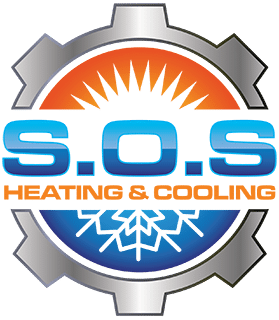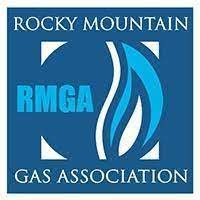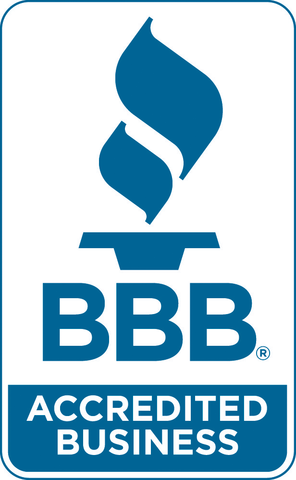Regular maintenance of your HVAC system is important for its performance and the air quality in your home. One key component that often gets overlooked is the HVAC filter. The filter plays a crucial role in trapping dust, pollen, and other particles, ensuring clean air circulates throughout your home. However, these filters need to be replaced regularly to function effectively.
Neglecting to replace a dirty filter can lead to numerous problems, including reduced airflow, increased energy consumption, and poor indoor air quality. Your HVAC system may have to work harder to maintain the desired temperature, which can eventually result in wear and tear. Replacing the filter on time helps avoid these issues and keeps your system running efficiently.
Understanding the Role of Your HVAC Filter
The HVAC filter is a critical component of your heating and cooling system, playing a significant role in maintaining a comfortable and healthy indoor environment. Located within the return air duct or blower compartment, the filter’s primary function is to trap dust, pollen, pet dander, and other airborne particles. By capturing these contaminants, the filter prevents them from being recirculated throughout your home, ensuring cleaner air.
A clean filter contributes to the overall efficiency and longevity of your HVAC system. A dirty or clogged filter restricts airflow, forcing the system to work harder to maintain the set temperature. This increased strain can lead to overheating and other mechanical issues, reducing the system’s lifespan. Regular replacement of the HVAC filter ensures that air flows freely, allowing the system to operate efficiently and effectively while minimizing wear and tear.
Furthermore, an efficient HVAC filter enhances indoor air quality. Poor air quality can cause or exacerbate respiratory problems and allergies. By regularly replacing the filter, you reduce the presence of harmful particles in the air, promoting a healthier living environment. This simple maintenance task is essential for maximizing your HVAC system’s performance and ensuring the well-being of everyone in your home.
Common Symptoms of a Dirty HVAC Filter
Recognizing the signs of a dirty HVAC filter is crucial for maintaining the efficiency and reliability of your system. One of the most common symptoms is reduced airflow. If you notice that air isn’t moving freely through your vents, a clogged filter may be the culprit. Restricted airflow can cause hot and cold spots in your home and make the system work harder, leading to higher energy bills.
Another sign that your HVAC filter needs immediate replacement is an increase in dust around your home. If you find more dust on surfaces despite regular cleaning, the filter may no longer be effectively trapping airborne particles. This can lead to a buildup of dust within the system, further impeding performance and decreasing air quality.
Unusual odors are also an indicator of a dirty filter. A clogged filter can harbor mold, bacteria, and other contaminants that create unpleasant smells when the system is running. If you detect musty or stale odors coming from your vents, it’s time to check and replace the filter. These symptoms not only signal a problem with the filter but also affect the comfort and health of your indoor environment. Addressing them promptly keeps your HVAC system running smoothly and maintains the quality of the air in your home.
Consequences of Not Replacing Your HVAC Filter
Neglecting to replace your HVAC filter can lead to numerous problems that affect both your system and your home's environment. One of the most immediate consequences is higher energy bills. A clogged filter restricts airflow, making your HVAC system work harder to maintain the desired temperature. This increased effort consumes more energy, which directly impacts your utility costs.
Over time, a dirty filter can cause extensive damage to your HVAC system. The strain from restricted airflow can lead to overheating and failure of key components, such as the blower motor and heat exchanger. These parts are costly to repair or replace, and frequent breakdowns can significantly shorten the lifespan of your entire system. Regular filter replacement is a minimal cost compared to the expenses of major repairs or early system replacement.
Poor indoor air quality is another serious consequence of not changing your filter. A neglected filter becomes saturated with dust, pollen, bacteria, and mold spores, which can circulate through your home. This deteriorates the air you and your family breathe, potentially aggravating allergies and respiratory conditions. Maintaining a clean filter ensures that your HVAC system effectively removes contaminants, providing you with a healthier environment.
How to Properly Replace Your HVAC Filter
Replacing your HVAC filter is a straightforward task that can save you money and improve your system's performance. Follow these simple steps to ensure a proper replacement:
- Turn Off the HVAC System: Before beginning, switch off your HVAC system to ensure safety.
- Locate the Filter: The filter is usually located within the return air duct or the blower compartment. Consult your system’s manual if you’re unsure.
- Remove the Old Filter: Take out the existing filter carefully to avoid dislodging trapped dust and contaminants.
- Inspect the Filter: Note the size and type of your filter to make sure you purchase the correct replacement.
- Insert the New Filter: Slide the new filter into place, ensuring it fits securely. Most filters have arrows or indicators showing the direction of airflow; align these correctly.
- Turn On the System: Reactivate your HVAC system and check that air flows smoothly through the vents.
When selecting a replacement filter, consider the needs of your household. Filters come in various MERV ratings, which indicate their ability to capture particles. Higher MERV ratings are more effective at filtering but can also restrict airflow if your system isn’t designed to handle them. Generally, you should replace your filter every 1-3 months, but this can vary based on factors like pets, allergies, and usage.
Conclusion
Regularly checking and replacing your HVAC filter is essential for maintaining system efficiency and ensuring high-quality air in your home. A clean filter helps your system run more effectively, cuts down on energy costs, and prevents expensive repairs. It also improves the air you breathe, promoting a healthier living environment.
Trust the expertise of our team at S.O.S. Heating & Cooling for all your HVAC maintenance needs. Our professionals are dedicated to keeping your system in top condition, ensuring you enjoy the benefits of a well-maintained HVAC unit. Schedule an HVAC service in Salt Lake City, UT with us today, and let us help you maintain the comfort and quality of your home.















